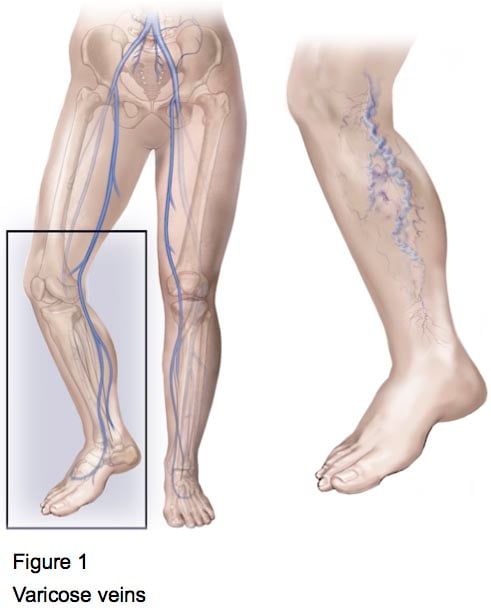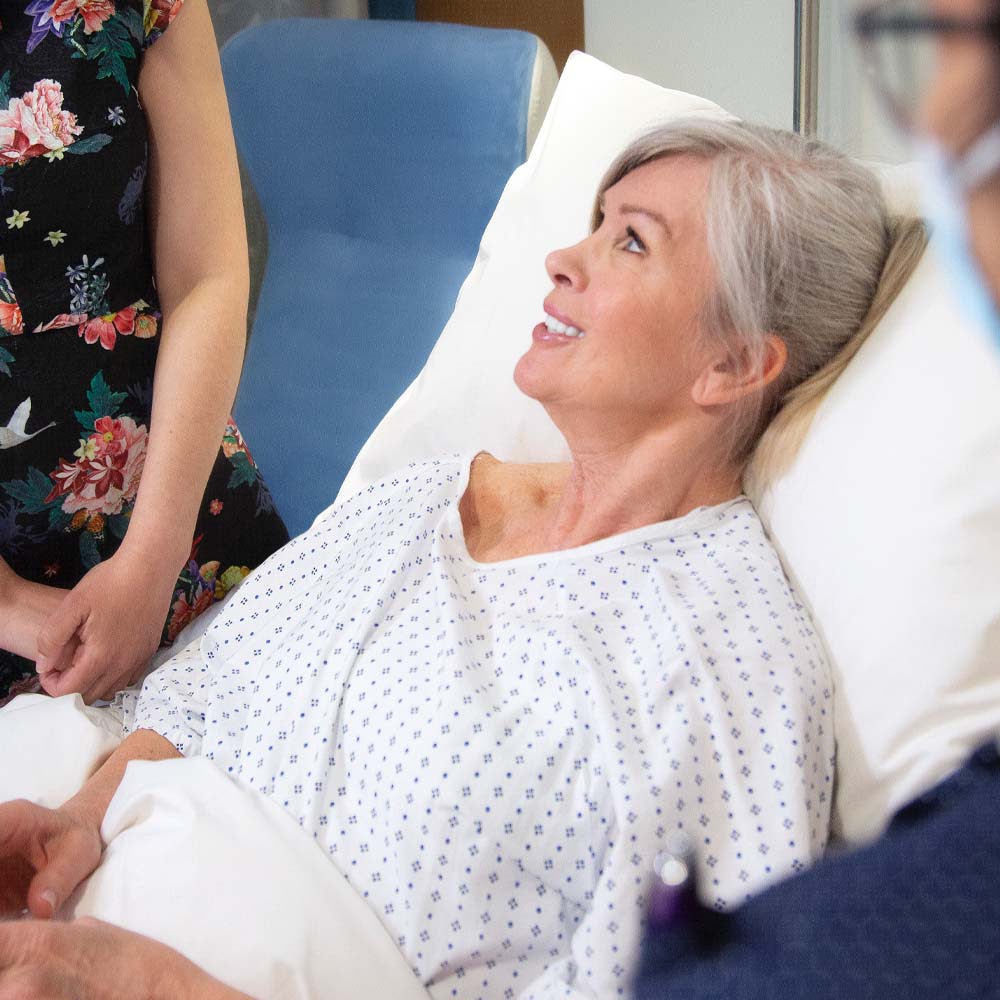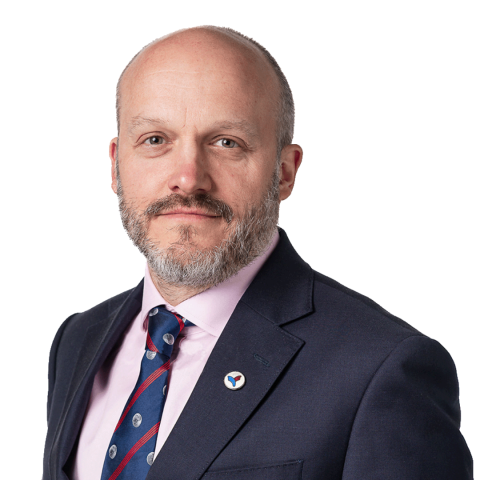This page will give you information about endovenous ablation (EVA) treatment for varicose veins. If you have any questions, you should ask your GP or other relevant health professional.
What are Varicose Veins?
Varicose veins are enlarged and twisted veins in the leg. They tend to run in families and are made worse by pregnancy and if you do a lot of standing.
Veins in your legs contain many one-way valves to help the upward flow of blood back to your heart. If the valves fail to work properly, blood can flow in the wrong direction causing varicose veins (see figure 1).

The Procedure
What are the Benefits of Surgery?
Your symptoms should improve. Endovenous ablation (EVA) should help prevent the symptoms and complications that varicose veins cause.
Are There Any Alternatives to EVA?
Support stockings can often help the symptoms caused by varicose veins.
Foam sclerotherapy is a similar technique that uses an injection of chemicals to treat the veins.
Varicose veins surgery involves disconnecting and removing the superficial veins from the deep veins, using a cut on your groin or the back of your knee.
What Does the Operation Involve?
This vascular surgery is performed under a general anaesthetic, local anaesthetic or spinal anaesthetic. The operation usually takes about 45 minutes.
Laser Ablation
Your surgeon will insert a catheter (tube) into the great or small saphenous vein. They will pass a laser fibre through the catheter and up to where the saphenous and deep veins meet. Your surgeon will use laser energy to cause the saphenous vein to close.
Radio-frequency Ablation
Your surgeon will insert a radio-frequency ablation catheter into the great or small saphenous vein. They will use radio-frequency energy to cause the saphenous vein to close.

Following Surgery
How Soon Will I Recover?
You should be able to go home the same day.
You may need to wear support stockings.
Try to return to normal activities as soon as possible, unless you are told otherwise.
Regular exercise should help you to return to normal activities as soon as possible. Before you start exercising, ask the healthcare team or your GP for advice.
Most people make a full recovery. Varicose veins can come back.
What Complications Can Happen?
General Complications of Any Operation
- Pain
- Bleeding
- Infection of the surgical site (wound)
- Unsightly scarring
- Blood clots
Specific Complications of This Operation
- Superficial thrombophlebitis
- Developing a lump under a wound
- Numbness or a tingling sensation
- Burns to your skin
- Ablation device cracking or breaking
- Damage to nerves
- Damage to arteries
- Continued varicose veins
Summary
Varicose veins are a common problem and can lead to complications if left untreated. Support stockings can help to control symptoms but will not remove the varicose veins.
If you would like to receive more information on Varicose Vein Treatment (Endovenous Ablation) at New Victoria Hospital or to make an appointment, please call our Outpatient Department on 020 8949 9020 or:

Acknowledgements
Author: Mr Bruce Braithwaite MChir FRCS
Illustrations: Medical Illustration Copyright © Nucleus Medical Art. All rights reserved. www.nucleusinc.com
The operation and treatment information on this website is published under license by New Victoria Hospital from EIDO Healthcare UK and is protected by copyright laws. Other than for your personal, non-commercial use, you may not copy, print out, download or otherwise reproduce any of the information. The information should not replace advice that your relevant health professional would give you.
Consultants and Clinic Times


Related Specialities
Vascular Surgery
Vascular surgery is a surgical speciality that focuses on diagnosis and treatment of diseases related to the vascular system which involved the arteries, veins and lymphatic system. Our highly…









